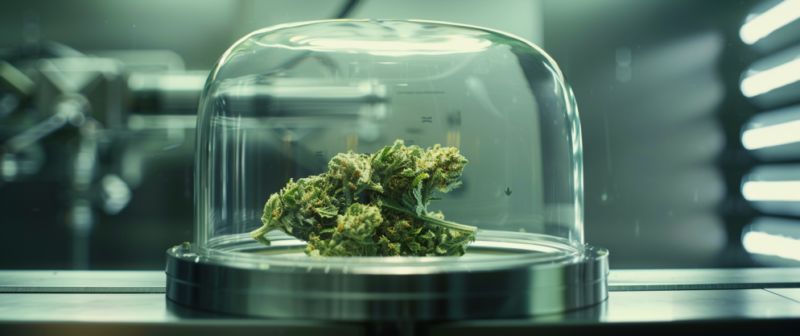How is delta 8 broken down in the body
Delta 8 tetrahydrocannabinol, commonly known as delta 8 THC, is a cannabinoid derived from the cannabis plant. Its unique properties have sparked interest for potential therapeutic uses.
Understanding how is delta 8 broken down in the body involves examining its absorption, metabolism, distribution, and excretion. This process influences its efficacy, safety, and potential health impacts.
How is Delta 8 Broken Down?
Delta 8 THC is broken down in the body through a series of processes involving absorption, metabolism, distribution, and excretion.
Upon ingestion or inhalation, delta 8 THC enters the bloodstream and is metabolized primarily in the liver by cytochrome P450 enzymes. It is then distributed to various tissues, including the brain and adipose tissue, where it interacts with the endocannabinoid system.
Finally, delta 8 THC and its metabolites are excreted through urine and feces.
Absorption
Delta 8 THC can be absorbed into the body through various routes of administration, including oral ingestion, inhalation, and sublingual administration. When ingested, delta 8 THC passes through the digestive system and enters the bloodstream.
Inhalation allows for rapid absorption through the lungs, while sublingual administration involves absorption through the mucous membranes under the tongue.
Metabolism in the Liver
Once in the bloodstream, delta 8 THC is transported to the liver, where it undergoes extensive metabolism by the cytochrome P450 enzyme system.
Key enzymes involved in this process include CYP3A4, CYP2C9, and CYP2C19. These enzymes convert delta 8 THC into various metabolites, some of which are active and contribute to its pharmacological effects.
Distribution in the Body
Delta 8 THC is distributed to different tissues in the body, including the brain, where it binds to cannabinoid receptors, and adipose tissue, where it can be stored. This distribution impacts its pharmacodynamics, influencing both its therapeutic effects and potential side effects.
The interaction with the endocannabinoid system plays a crucial role in mediating these effects.
Excretion
The final step in the breakdown of delta 8 THC is its excretion from the body. The metabolites of delta 8 THC are primarily excreted through urine and feces. The rate of excretion can vary depending on factors such as the dose, frequency of use, and individual metabolism.
Detection of delta 8 THC and its metabolites in bodily fluids can be relevant for drug tests.
How Does Delta 8 Affect the Body?
Delta 8 THC interacts with the body through its action on the endocannabinoid system, producing various effects on different physiological and psychological functions. Its impact can be observed in terms of psychoactive effects, potential therapeutic benefits, and possible side effects, all depending on its route of administration.
Psychoactive Effects
Delta 8 THC, like its isomer delta 9 THC, has psychoactive properties, though it is generally considered to be less potent. It binds to cannabinoid receptors in the brain, particularly CB1 receptors, altering neurotransmitter release and potentially inducing psychosis.
This interaction can lead to mood elevation, altered perception, and a sense of relaxation. However, the psychoactive effects of delta 8 THC are typically milder, making it a preferred choice for those seeking a less intense experience.
Therapeutic Benefits
Delta 8 THC is being researched for its potential therapeutic benefits. It may offer analgesic properties, helping to relieve discomfort without the intense psychoactivity associated with delta 9 THC.
In addition, delta 8 THC has been studied for its antiemetic effects, reducing nausea and vomiting. It may also have anxiolytic properties, contributing to reduced stress and improved sleep quality.
Impact on Mental Health
Delta 8 THC’s impact on mental health is complex and depends on individual factors such as dosage and frequency of use. While some users report reduced stress and improved mood, others may experience heightened stress or paranoia, particularly at higher doses.
Long-term use can potentially lead to mental health issues such as dependence or altered cognitive function, necessitating further research to understand its full impact.
Interaction with Other Substances
Delta 8 THC can interact with other substances, including alcohol, medications, and other cannabinoids. These interactions can amplify or mitigate its effect.
For example, combining delta 8 THC with alcohol can enhance sedation and impair motor skills. It can also interact with medications metabolized by the cytochrome P450 enzymes, potentially altering their efficacy or causing adverse effects.
Delta 8 Consumption
Aside from concentrate, Delta 8 THC can be consumed through various methods, each offering distinct advantages and effects. The choice of consumption method impacts the onset time, bioavailability, water consumption, and overall experience.
Here are the primary methods of consuming delta 8 THC chemical compound:
- Inhalation (Smoke or Vaping): Absorbed through the lungs, inhalation provides rapid onset within minutes and high bioavailability through the help of a modern inhaler (e.g. vape cart). However, it may not be suitable for those with respiratory issues and carries potential risks associated with smoking.
- Oral Administration (Edibles): Edibles like gummies or beverages result in slower absorption through the digestive system and liver. Onset takes 30 minutes to 2 hours, with longer-lasting effects. Edibles offer a discreet and convenient option, though dosing can be challenging.
- Sublingual Administration (Tinctures): Placing tinctures or oil under the tongue allows for faster absorption through mucous membranes, with effects in 15 to 30 minutes. This method offers a balance between inhalation and edibles in terms of onset time and duration, with better dosing control. You may also pair tinctures with a drink.
- Topical Application: Applying delta 8 THC creams or lotions directly to the skin provides localized relief of discomfort or irritation without psychoactive effects. It interacts with cannabinoid receptors in the skin but does not significantly enter the bloodstream.
- Capsules and Softgels: These provide a convenient and precise way to consume delta 8 THC, with consistent dosing. Metabolized by the digestive system and liver, the onset is slower, but capsules offer controlled and measured intake. They can also be used as a dietary supplement.
Each method of delta 8 THC consumption has its own set of benefits and considerations, allowing users to choose the option that best fits their needs and preferences.
Beneficial Effects of Delta 8
Delta 8 THC offers various potential beneficial effects, making it a subject of growing interest in the world of cannabis-based therapies. While research is ongoing, preliminary studies suggest several positive impacts on health and well-being.
Here are some of the potential beneficial effects of delta 8 THC:
- Analgesic Properties: Delta 8 THC may have analgesic properties, offering relief from discomfort without the intense psychoactive effects associated with delta 9 THC.
- Antiemetic Properties: Research indicates that delta 8 THC may act as an antiemetic, reducing nausea and vomiting. This effect can be particularly beneficial for patients undergoing chemotherapy or experiencing nausea due to other medical conditions.
- Anxiolytic Effects: Delta 8 THC has been studied for its potential anxiolytic effects, helping to reduce stress and promote relaxation and memory. It interacts with neurotransmitter systems involved in stress regulation, offering a calming effect without the intense stress-inducing properties of delta 9 THC.
- Appetite Stimulation: Similar to delta 9 THC, delta 8 THC may stimulate appetite. This effect can be beneficial for individuals with conditions that cause appetite loss or cachexia, enhancing food intake and supporting nutritional health.
- Neuroprotective Properties: Preliminary research suggests that delta 8 THC may have neuroprotective properties, potentially offering protection to nerve cells and supporting cognitive function while assisting the central nervous system. This makes it a potential candidate for therapeutic interventions in neurodegenerative conditions.
- Sleep Enhancement: Some users report that delta 8 THC helps improve sleep quality by reducing sleep disturbances and promoting relaxation. This effect can be particularly beneficial for individuals experiencing insomnia or other sleep disorders.
Delta 8 THC shows promise as a therapeutic agent with a range of potential benefits. However, further research, including clinical trials, is needed to fully understand its mechanisms of action and confirm its efficacy and safety for various medical applications.
Delta 8 Side Effects and Risks
While delta 8 THC is gaining popularity for its potential benefits, it’s important to consider possible side effects and risks associated with its use. Understanding these factors can help users make informed decisions about consumption.
Here are some potential side effects and risks of delta 8 THC:
- Psychoactive Effects: Delta 8 THC, like other cannabinoids and opioid drugs, can produce psychoactive effects, although typically milder than delta 9 THC. Users may experience altered perception, mood changes, or impaired coordination, especially with higher doses. There’s also other risks, such as addiction, substance abuse, and certain effects on a specific disease.
- Dry Mouth: Commonly referred to as cottonmouth, dry mouth is a frequent side effect of delta 8 THC. This occurs due to the cannabinoid’s interaction with saliva production.
- Increased Heart Rate: Delta 8 THC may cause an increase in heart rate, known as tachycardia, particularly in individuals sensitive to cannabinoids or those consuming higher doses.
- Dizziness and Lightheadedness: Some users may experience dizziness or lightheadedness, especially when first using delta 8 THC or with higher doses. This effect can be more pronounced in individuals with low tolerance or sensitivity.
- Reduction in Blood Pressure: Delta 8 THC can cause a temporary drop in blood pressure. While this may not be harmful for most people, individuals with existing cardiovascular conditions should exercise caution.
- Potential Drug Interactions: Delta 8 THC may interact with vitamin or medications metabolized by the liver’s cytochrome P450 enzymes. This interaction can alter the efficacy or side effects of medications, necessitating attention and consultation with a healthcare provider before use.
- Legal Considerations: The legal status of delta 8 THC varies by location. In some places, it exists in a legal gray area, and regulations may change rapidly. Users should be aware of local laws and regulations before purchasing or consuming delta 8 THC products.
- Quality and Purity: Due to the relative novelty of delta 8 THC products, quality and purity can vary significantly among manufacturers. Users should seek products from reputable sources and ensure they undergo third-party testing for contaminants and potency.
Understanding these potential side effects and risks associated with delta 8 THC can help individuals make informed choices about its use, prioritize safety, and minimize adverse effects.
Legality of Delta 8
Delta 8 THC is a cannabinoid naturally found in cannabis plants, but its legal status is not straightforward. In the United States, the legality of delta 8 THC largely hinges on its source and the method of extraction. Adding to that are the complexities found in Food and Drug Administration and Drug Enforcement Administration regulations.
The 2018 Farm Bill legalized hemp and its derivatives, including cannabinoids derived from hemp containing less than 0.3% delta 9 THC on a dry weight basis. Delta 8 THC can be derived from hemp through extraction and conversion processes, making it technically legal under federal law if it meets these criteria.
However, some states have explicitly banned delta 8 THC, while others have not addressed its legality, leading to confusion and varying enforcement practices. It’s crucial for consumers and businesses to stay informed about local regulations and consult legal experts to navigate the complex landscape of delta 8 THC legality.
Final Thoughts – How Is Delta 8 Broken Down in the Body
Delta 8 THC presents intriguing potential as a cannabinoid with various effects on the body, from potential therapeutic benefits to considerations of legal status and drug testing outcomes. Its breakdown in the body involves absorption, metabolism, distribution, and excretion processes, influencing its efficacy and safety profiles.
As research continues to unfold, understanding these facets of delta 8 THC is essential for users, healthcare providers, and policymakers alike to navigate its use responsibly and safely within the evolving landscape of cannabis regulation and health considerations.
FAQ
1. What is the difference between delta 8 THC and delta 9 THC?
Delta 8 THC and delta 9 THC are both cannabinoids found in cannabis, but they differ in potency and psychoactive effects. Delta 8 THC is generally considered to produce a milder high compared to delta 9 THC, making it a preferred choice for those seeking a less intense experience.
2. How does delta 8 THC affect appetite?
Delta 8 THC may stimulate appetite, similar to delta 9 THC, by interacting with cannabinoid receptors involved in regulating hunger and food intake. This effect can be beneficial for individuals experiencing appetite loss due to medical conditions or therapies.
3. Are there any legal restrictions on delta 8 THC products in the European Union?
In the European Union, the legality of delta 8 THC varies among member states. Some countries have specific regulations governing cannabinoids derived from hemp, including delta 8 THC, while others may not explicitly address its legality. It’s advisable to check local laws and regulations before purchasing or using delta 8 THC products.
4. Is delta 8 THC safe for long-term use?
The long-term safety of delta 8 THC has not been extensively studied. While it is generally considered to have a lower risk of adverse effects compared to delta 9 THC, continuous use may still carry potential risks. Users should monitor their usage and consult healthcare professionals if they have concerns about prolonged use.
5. Can delta 8 THC cause stress or paranoia?
Delta 8 THC may cause stress or paranoia, particularly at higher doses or in individuals sensitive to cannabinoids. While some users report reduced stress, others may experience heightened stress or paranoia, emphasizing the importance of starting with low doses and monitoring personal tolerance.
6. Does delta 8 THC have antioxidant properties?
Emerging research suggests that delta 8 THC may possess antioxidant properties, potentially protecting cells from oxidative stress and irritation. These properties could contribute to its potential health benefits beyond its interactions with cannabinoid receptors.
7. How does delta 8 THC affect sleep patterns?
Delta 8 THC has been reported by some users to improve sleep quality by reducing insomnia symptoms and promoting relaxation. Its effects on sleep patterns may vary depending on individual metabolism and dosage, highlighting the need for personalized use and careful monitoring.
8. Are there any age restrictions for purchasing delta 8 THC products?
Age restrictions for purchasing delta 8 THC products vary by jurisdiction. In some regions, products containing delta 8 THC may be restricted to individuals over a certain age, typically 18 or 21 years old. It’s important to comply with local laws and regulations regarding age restrictions for cannabis-related products.


